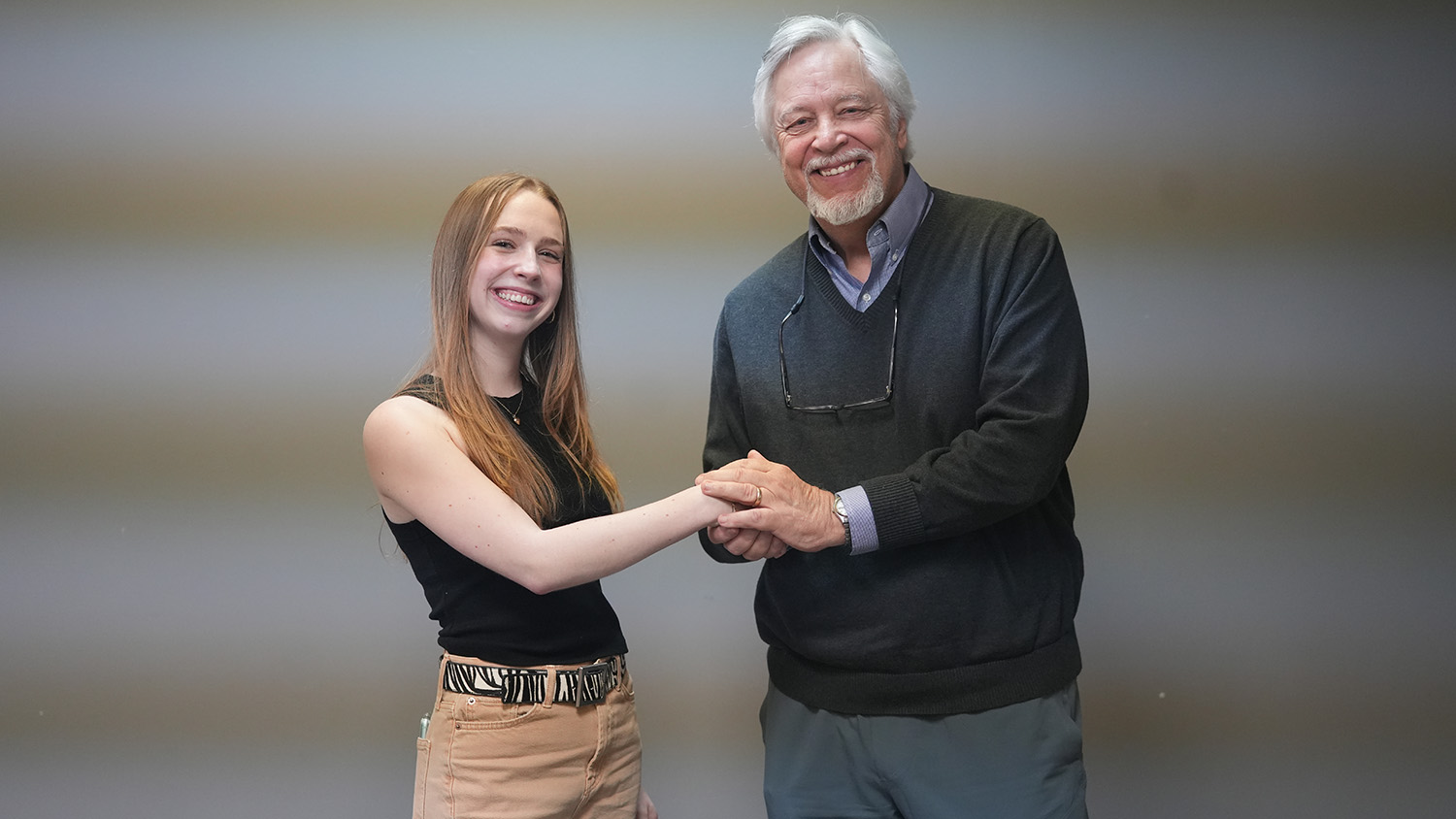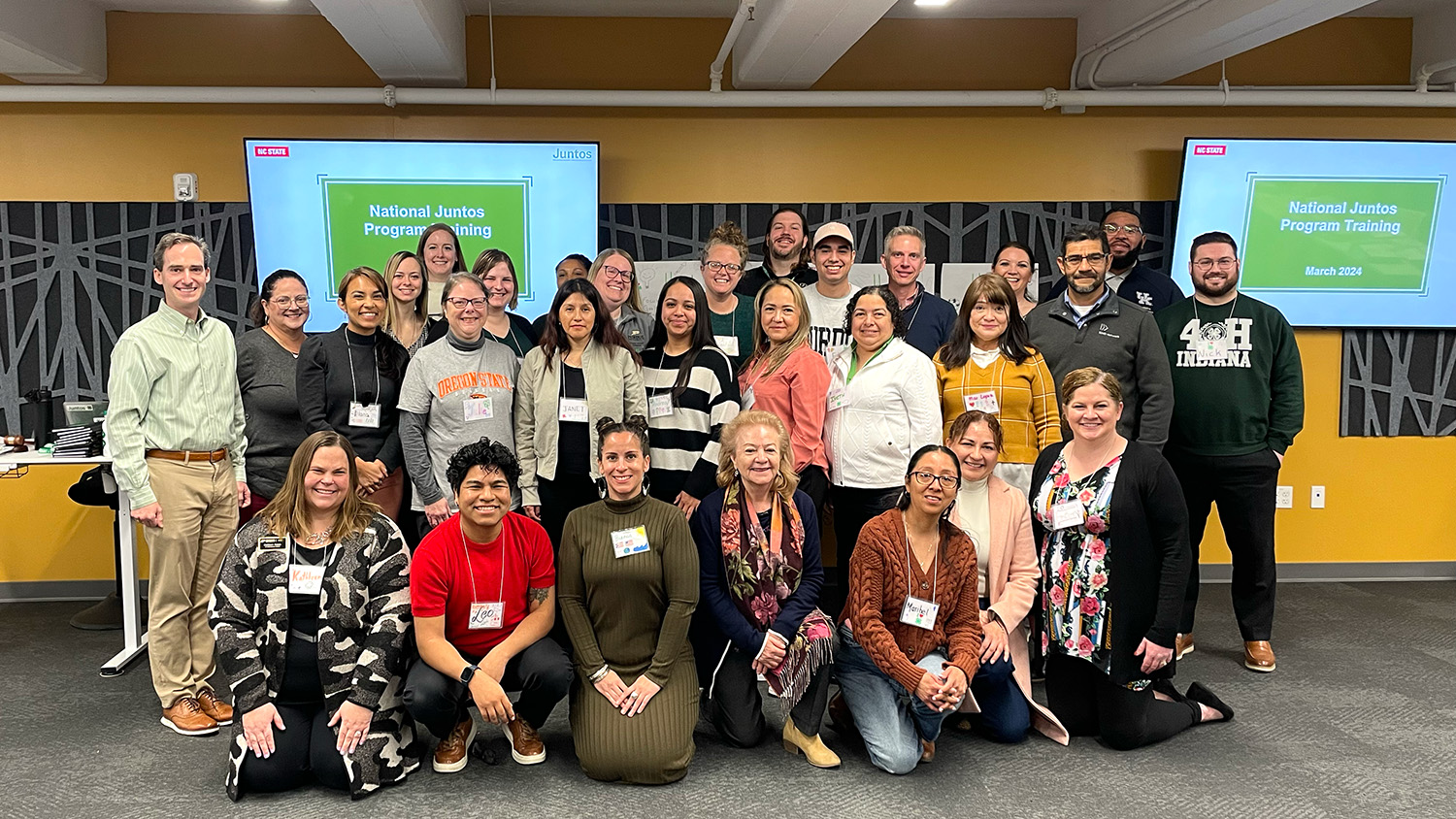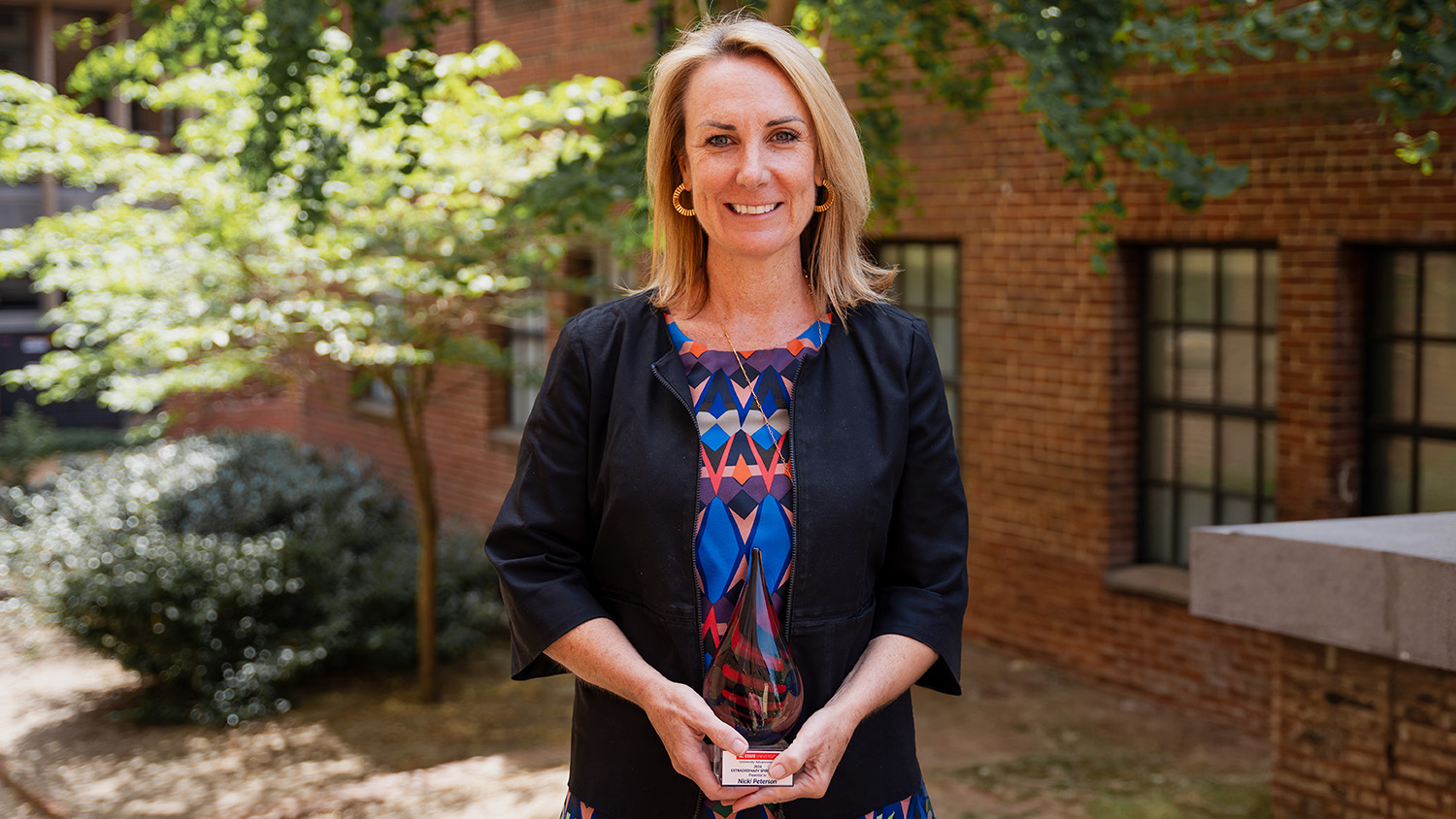Tribute to Thomas E.H. Conway, Jr.
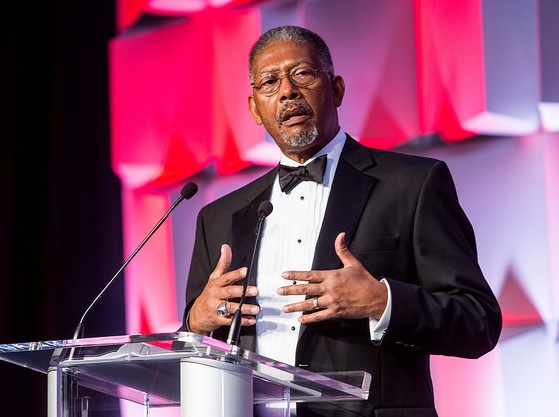
Thomas E.H. Conway, Jr., a brilliant mentor, educator, advocate, and leader in North Carolina higher education, passed away on May 15 at the age of 70 surrounded by his loving family after a courageous two-year battle with cancer.
During his 32 years at NC State, Conway positively influenced students, faculty, and staff by serving in numerous influential positions: dean of undergraduate academic programs; visiting lecturer in the College of Education’s counselor education program; vice provost for enrollment management and services; associate vice provost for the Division of Undergraduate Affairs; director of the First-Year College; counselor in the University Counseling Center; director of TRIO Programs; director of the Academic Support Program for Student Athletes; and director of recruiting and minority services for the College of Engineering.
Tom Stafford, retired vice chancellor of student affairs, welcomed Conway to NC State in 1972 when he arrived to fill a newly-created position to work with high potential students from disadvantaged backgrounds and incentivize them to pursue a college education.
“When Thomas arrived at NC State, there were very few African American faculty or students here,” Stafford said. “Throughout his 32 years on campus, he played a significant role to help the university go through an important and critical transition. He helped all of us understand that the university had to culturally adapt to welcome African American students, to value them, and to help them be successful. Thomas played a very important role in the transformation of NC State.
“He helped all of us understand that the university had to culturally adapt to welcome African American students, to value them, and to help them be successful. Thomas played a very important role in the transformation of NC State.”
Tom Stafford, retired vice chancellor of student affairs
“Thomas was a delightful, bright, likeable man, and everyone enjoyed working with him,” Stafford continued. “What I remember most was that every position he took at NC State, he made it his number-one priority to try to improve the opportunities and successes of students. He cared so deeply about all of us—students, faculty, staff—and he encouraged us all to bring our best selves forward.”
Early Years
A native of Louisburg, N.C., Conway received his undergraduate degree in agricultural education and a master’s degree in guidance and counseling from NC A&T State University in Greensboro, N.C., where he worked as a photojournalist for the Greensboro News and Record. He received his Ph.D. in counselor education from NC State, and he was a member of Omega Psi Phi and Sigma Pi Phi fraternities.
A Vision for Breaking Racial Barriers
Evelyn Reiman, who served in a number of roles at NC State in her 32-year career including associate vice chancellor of student affairs, said, “Dr. Conway was a sensational human being and held many important leadership roles. He was among the core of influential people at NC State who did the most to enrich my understanding of race and racism.”
In 2008, after more than three decades at NC State, Conway accepted the position of vice chancellor and chief of staff at Fayetteville State University with the then-chancellor James A. Anderson, where he remained until 2016.
A lifelong goal was to become the president of a HBCU institution, which came true when then UNC System President Thomas W. Ross appointed him interim chancellor of Elizabeth City State University. In 2016, Conway was named the university’s 11th chief executive officer and sixth chancellor in 2017 by former UNC System President Margaret Spellings. He remained at that post until his retirement in 2018.
Beloved Mentor, Transformational Leader
Tracey Ray Robinson, the chief diversity and inclusivity officer at West Chester University, remembered meeting Conway as an undergraduate student even though she wasn’t in the Minority Engineering Program.
“His service and mentorship at NC State reached beyond engineering, and he was a key figure and role model, especially within the African American community,” she recalled. “He was available to all of us.”
When she returned to NC State as a professional, Conway welcomed and mentored her in this new capacity and throughout her career.
“There was never a time that I asked him for something that he didn’t make time for me or serve as a resource for me—as a student and as a professional,” she said. “He was a transformational leader. His work transcended race. He was committed to removing institutional barriers, finding those students who didn’t traditionally succeed, and helping them to succeed. NC State has been committed to closing the equity gap around graduation, and Dr. Conway’s work is a key part of this. NC State continues to benefit from his work to help all students succeed.”
In her role as chief diversity officer at a premier university, Robinson still leans on what Conway instilled in her and in other mentors he cultivated. “Our community is endless and his legacy is shining brightly,” she said. “He infused in us his wisdom. We are here doing his work today.”
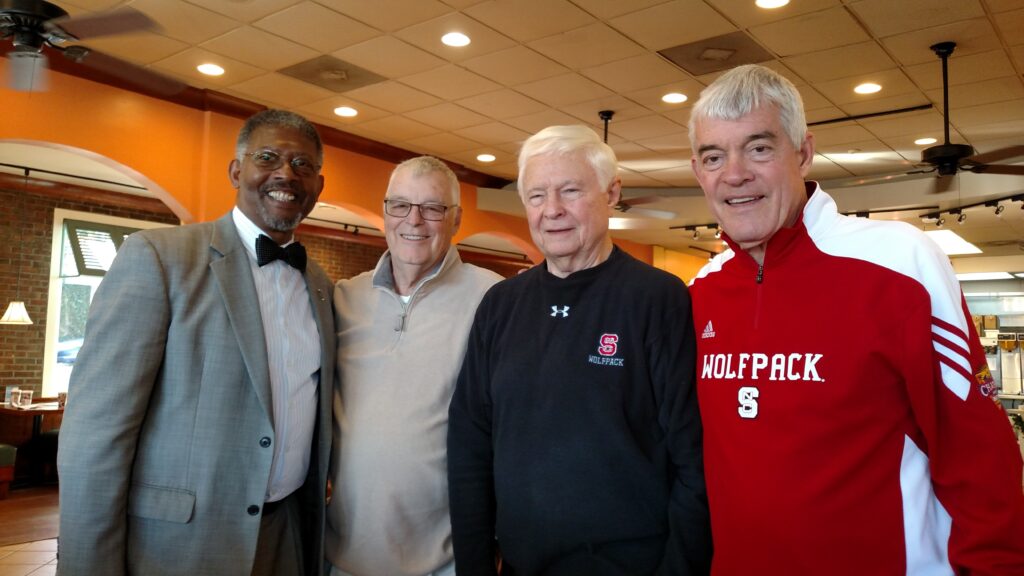
Champion of Confidence, Committed Advocate
Carrie Zelna, associate vice chancellor for the Division of Academic and Student Affairs, had known Conway for 15 years and worked with him in a number of settings. She recalled that he cared greatly for the people he mentored and always put their growth and development at the forefront.
“Dr. Conway was special,” Zelna said. “He cared greatly for the people he mentored and always put their growth and development in the forefront. As a new professional, Dr. Conway took me under his wing on a project that involved many much higher ranking administrators. He taught me to have confidence in my ideas and believe in my ability to contribute to a solution, regardless of my position.
“I worked hard on developing a model to explain our response to the issues we were addressing, and he not only listened to my approach but he championed my work for years to come, always making certain that people understood my contribution,” Zelna continued. “I continued to see Dr. Conway at professional events long after he left NC State, and each time it was as if no time had passed. He continued to counsel me both professionally and personally every time I was lucky enough to see him. I will miss him.”
Angela Caraway, president of The Caraway Management Group, Inc. and executive director of The Caraway Foundation, graduated from NC State in 1995 with a B.A. in communication studies. She remembers meeting Conway, who at the time oversaw the University Transition Program to which she had been admitted.
“He was the first person I met at NC State, and because of him I knew I was at home,” Caraway said. “He was like our college dad, our uncle for all of the black students, and his wife Mychele, was like a mother to our community, whether we were undergraduate or Ph.D. students—always supportive, always encouraging.”
“He was like our college dad, our uncle for all of the black students…”
Angela Caraway, alumna and President of the Caraway Management Group, Inc.
As a predominantly white institution, “Dr. Conway talked to us about being a black student and the importance of our role at NC State,” Caraway said. “He made an impact on my life, being an African American woman, and he taught me to make sure I was seen and heard in the classroom where typically there was no more than one African American student. He made it clear to every African American student that we had the same rights and opportunities as everyone else. He instilled in us the confidence that we could be what we wanted to be!”
Jamila Simpson, assistant dean for academic programs, student diversity, and engagement at the College of Sciences, entered NC State as a freshman in 1995. She recalled the way that Conway always respected students, their opinions, and their leadership.
“We always knew we had a student advocate with him, especially for students who were historically underserved (underrepresented and first generation students),” Simpson said. “When he left NC State, I was devastated. One of our strongest advocates was gone. But I am happy for the other universities that had the benefit of his life-changing leadership.”
Simpson fondly remembers Conway’s poignant keynote speech at the NC State Black Alumni Society’s 40th Anniversary Gala last November.
“The room was filled with Black alumni who were profoundly impacted by his life,” she said. “He shared so much history with all of us and reminded everyone of how far NC State has come and the work that we still have to do. He reminded everyone of their roles in making NC State an amazing university. But most of all, I remember the love in the room for him. Everyone loved him. He received a long-standing ovation. Honestly, I don’t think any of us wanted it to end.”
Honoring His Memory
Conway is survived by his parents, Thomas E.H. Conway, Sr., and Cornelia Cleopatra Ellis Conway; his wife, B. Mychele Conway; his children, Simon C.A. Conway and Zena E.M. Conway, numerous siblings, grandchildren, nieces, nephews, cousins, and friends.
Donations may be made to The Dr. Thomas E.H. Conway, Jr. Foundation at P.O. Box 3011, Elizabeth City, NC 27906.
